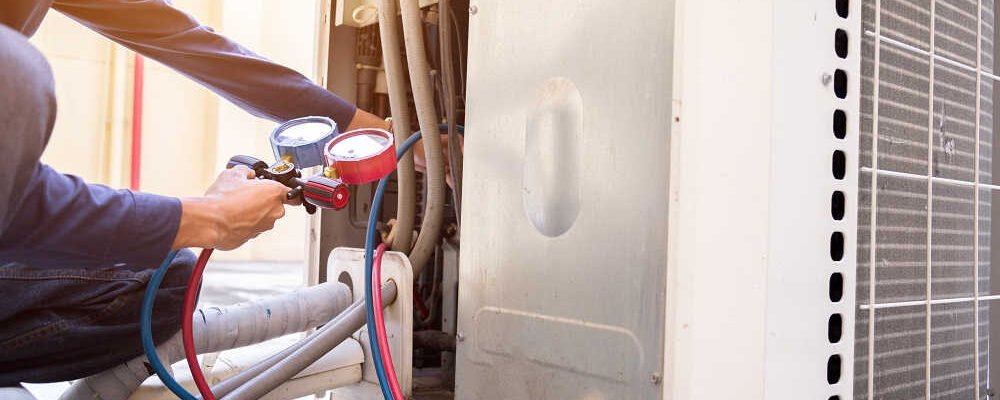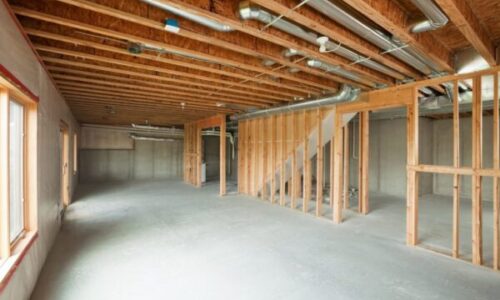Air conditioning systems are crucial for maintaining comfortable temperatures in homes and buildings. But, like any other mechanical system, they can break down or malfunction over time. If you’re handy with tools and want to save money, you may be tempted to try and repair your AC unit yourself.
However, it’s important to know which central air conditioning repairs are safe to do yourself and which ones require professional help.
In this article, we’ll discuss what you should and shouldn’t attempt when it comes to DIY air conditioning repair.
What You Should Attempt
There are several central air conditioning repairs that you can attempt yourself to save money and prolong the life. Here are some of the DIY central air conditioning repairs that you can do:
Cleaning or Replacing the Air Filter
The air filter in your AC unit should be cleaned or replaced every one to three months. This is a simple task that can be done by anyone. A dirty air filter can cause the AC unit to work harder than necessary and reduce its lifespan. If you are in Lago Vista, you can clean it in Lago Vista AC service. To clean the air filter, simply remove it from the unit, rinse it with water, and let it dry before reinserting it.
Cleaning the Condenser Coils
The condenser coils in your central air conditioning unit play a critical role in the cooling process. They are responsible for releasing the heat that has been absorbed by the refrigerant from your indoor air. Over time, condenser coils can become dirty and clogged, which can reduce their efficiency and cause your central air conditioning unit to work harder than necessary.
Here’s how you can clean the condenser coils in your central air conditioning unit:
Tools and Materials Needed
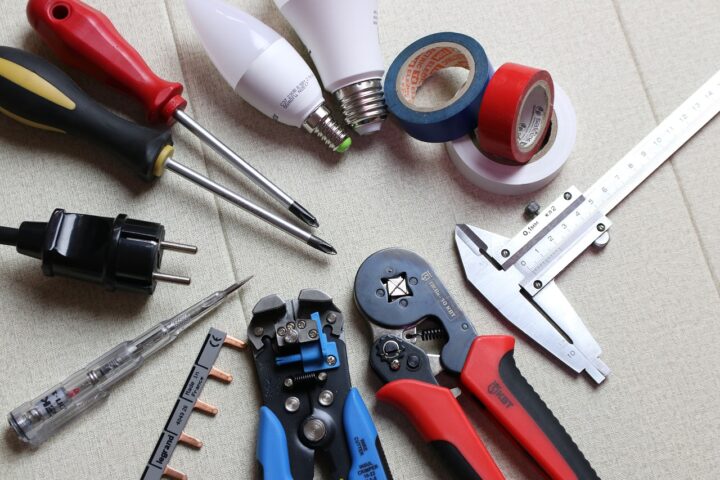
To clean the condenser coils, you’ll need a few tools and materials:
- Screwdriver
- A soft brush or vacuum cleaner with a brush attachment
- Garden hose or pressure washer
Steps to Clean the Condenser Coils
- Turn off the power to the air conditioning unit by switching off the circuit breaker.
- Remove the screws or clips that hold the top panel in place.
- Gently lift the top panel and set it aside.
- Use a soft brush or vacuum cleaner with a brush attachment to remove any debris from the condenser coils.
- Once the debris has been removed, use a garden hose or pressure washer to rinse the coils thoroughly.
- Allow the coils to dry completely before replacing the top panel and turning the power back on.
Regular maintenance, including cleaning the condenser coils, can help prolong the life of your system and ensure that it runs efficiently. It’s important to perform this task at least once a year, preferably before the cooling season begins.
Cleaning the Evaporator Coils
The evaporator coils are located inside the indoor unit, and they can also become dirty over time. Cleaning the evaporator coils can be a bit more complicated, but it’s still a DIY task that can be done with a soft brush or a specialized cleaner. To clean the coils, turn off the power to the unit and carefully clean the coils with a soft brush or a cleaner specifically designed for evaporator coils.
Checking the Thermostat
If your AC unit is not working, the first thing you should check is the thermostat. Make sure it’s set to “cool” and at the right temperature. You may also want to replace the batteries if they’re low. This is a simple task that can be done by anyone.
What You Shouldn’t Attempt
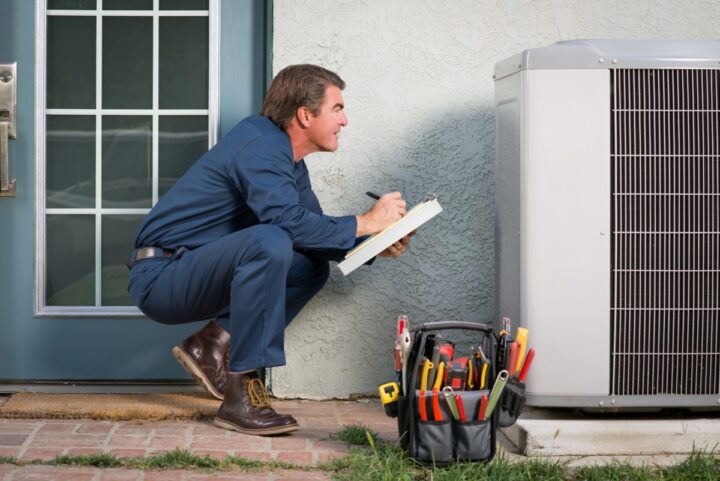
When it comes to DIY central air conditioning repair, it’s important to know which tasks you should avoid. Attempting to repair certain components can be dangerous and even cause more damage to your system. Here are some things you should never attempt to repair yourself.
Refrigerant Leaks
Refrigerant is a crucial component that helps to cool the air. If you notice that your central air conditioning unit is not cooling properly, it may be due to a refrigerant leak. Attempting to repair refrigerant leaks yourself is not recommended as it’s illegal to handle refrigerant without a license. In addition, refrigerant leaks can cause serious health hazards, including frostbite, eye damage, and even asphyxiation.
Electrical Issues
These units are powered by electricity, and attempting to fix electrical issues yourself can be dangerous. Electrical issues can also be tricky to diagnose, so it’s best to call a professional electrician or HVAC technician to assess and repair any electrical problems. Attempting to fix electrical issues yourself can result in electric shock or damage to your central air conditioning unit.
Compressor Problems
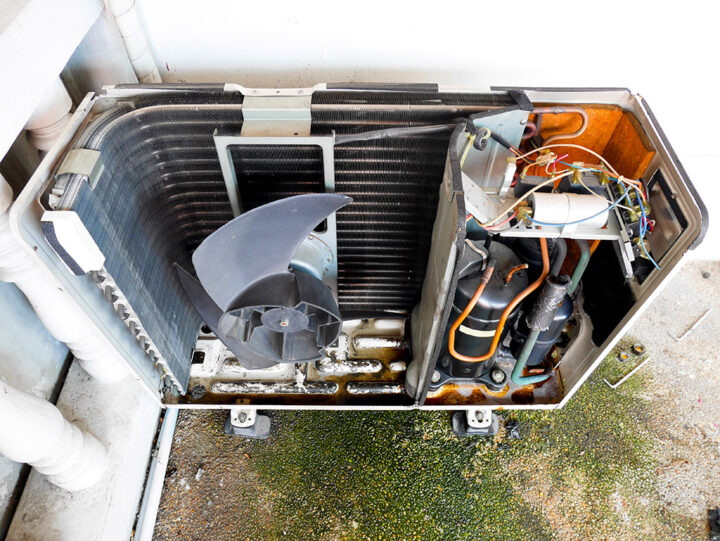
The compressor is the heart and is responsible for compressing and circulating the refrigerant. Compressor problems are complex and require specialized knowledge and tools to repair. Attempting to repair or replace the compressor yourself is not recommended as it can cause further damage to your central air conditioning unit and can be dangerous.
Motor Problems
The motor in your air conditioning unit is responsible for powering the fan and other moving parts. Motor problems can be caused by a variety of issues, including worn bearings, electrical problems, and overheating. Attempting to repair or replace the motor yourself can be dangerous and can cause further damage to your air conditioning unit.
Here are some signs that your AC unit may have motor problems:
Signs of Motor Problems
One of the most common signs of motor problems is a loud grinding or buzzing noise coming from the unit. This may indicate that the bearings in the motor are worn and need to be replaced. Other signs of motor problems include a burning smell coming from the unit or the fan not turning on.
When to Call a Professional
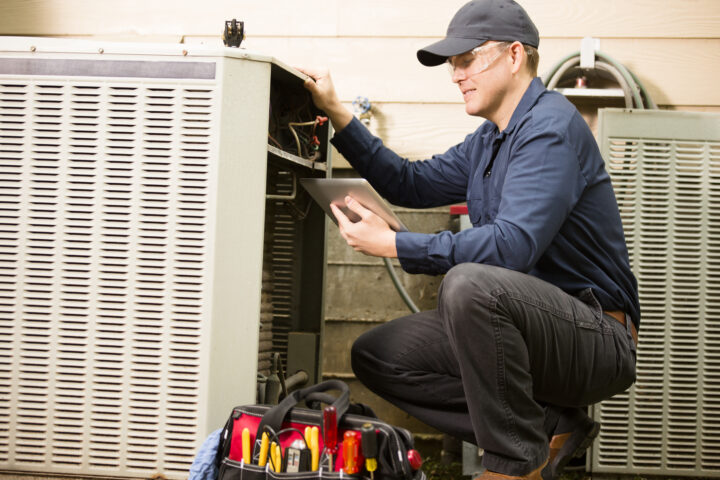
If you notice any of these signs, it’s important to call a professional HVAC technician to assess and repair the issue. Attempting to repair or replace the motor yourself can be dangerous and can cause further damage to your central air conditioning unit. A professional technician will have the knowledge and tools to diagnose and repair any motor problems safely and efficiently.
Preventing Motor Problems
To prevent motor problems from occurring, it’s important to perform regular maintenance on your central air conditioning unit. This includes cleaning or replacing the air filter regularly, cleaning the condenser and evaporator coils, and checking the thermostat. By performing regular maintenance, you can help prolong the life and prevent motor problems from occurring.
Conclusion
In conclusion, DIY air conditioning repair can save you money, but only if you know what you’re doing. It’s important to stick to simple tasks like cleaning or replacing the air filter and condenser coils.
Leave more complicated repairs to the professionals, like refrigerant leaks, electrical issues, compressor problems, and motor problems. By following these guidelines, you can ensure that your central air conditioning unit runs smoothly and efficiently for years to come.

